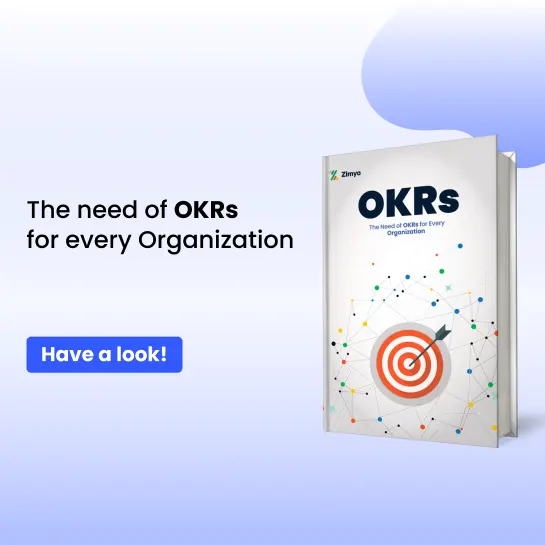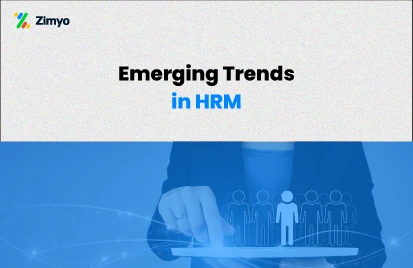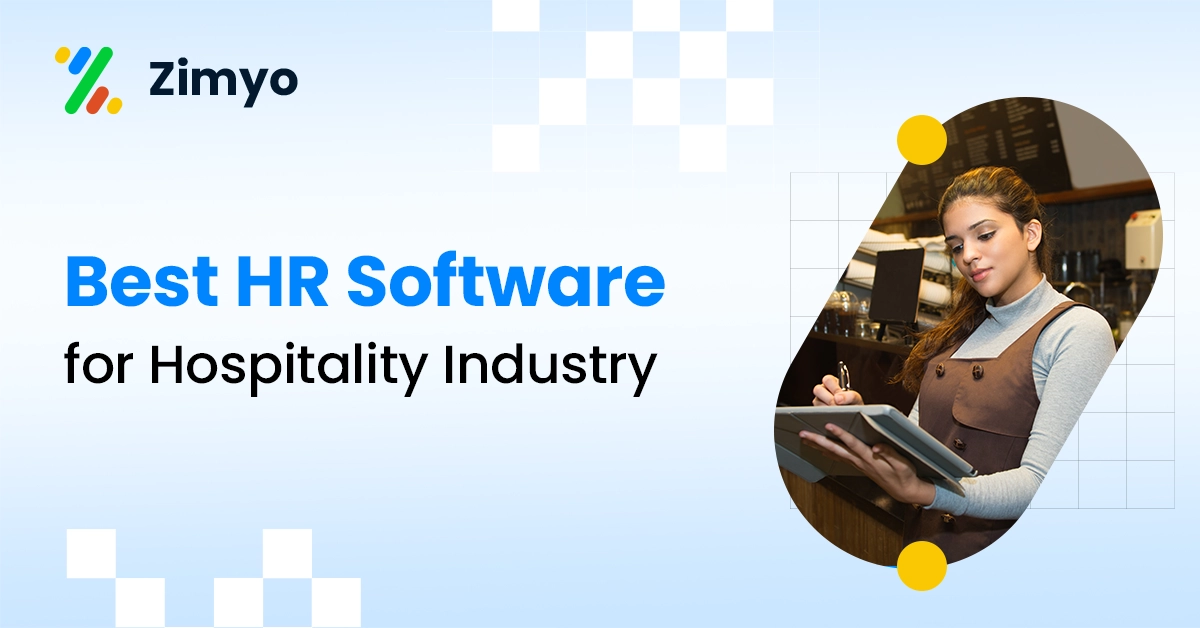Human resources management systems are slowly demonstrating that it contributes to the profits of an organisation in a manner that can be measured. While, HR has for long been accepted as key to organisational success, albeit in a non-profitable manner, this is slowly changing with metrics surfacing and indicating the unmistakable contribution to the bottom-lines. While evaluation of the benefits of HRMS software typically looked at process and other metrics in the past, this is now changing dramatically, with the inclusion of financial metrics that point to the picture that had largely been ignored in the past.
Financial Metrics have helped organisations to quantify costs and impact of various HR processes for startups. For instance, the amount spent on training per employee, the return on investment of HR initiatives, and savings in use cases, are some of the insights offered by financial metrics. Some of the more easily quantifiable areas of financial metrics while evaluating an HR Management System are :
- Slashing of time spent and overhead expenses by introducing self service capabilities and automation
- Effective succession planning
- Reducing churn rate
- Business process transformation
- Reduction in human errors
Self service capabilities and automation – Organisations employing a large workforce will find it tedious to handle the requests of employees pertaining to routine administrative requirements. Simple issues relating to payroll, statutory benefits, compensatory off and other compliance’s are time consuming and can effectively be handled without human intervention. This entry level activities which do not require human interaction can save a lot of valuable time, both for the employees seeking information and clarification and the HR department which can then focus its efforts to drive business growth. Automation and self service capabilities are a great boost to processes, and globally, organisations and processes have embraced these capabilities with stunning results.
Succession planning – A performance evaluation system is mandatory in organisations that need to keep various hierarchy levels filled for optimum efficiency. A good HR management system that includes an advanced performance evaluation system will considerably help in evaluating skill levels and performances of resources. Business growth and expansion requirements mandate the need for a proper planning to manning various hierarchy levels. Various verticals in a business will lose steam and direction in the absence of qualified and experienced heads. One of the benefits of HRM software is that it offers the right tool to evaluate performance which will help in ensuring that the bench strength is good enough to handle expansion plans.
Attrition rate reduction – This is perhaps one of the more tangible and easily accepted of the financial metrics when it comes to evaluation of an HR management system. By understanding the reasons for attrition, it is possible to bring in changes in structure, processes and workflow to make the organisation more employee friendly, thereby reducing attrition. It is near impossible to eliminate attrition, however, it is possible to reduce it to great extent. And organisations are fully aware of the costs that will accrue as a result of high attrition rates. The disbursal of benefits, the costs towards training that were spent on the quitting employee, the induction period and training that will be required to get the new employee up to the desired standard are all tangible and intangible expense that add up to a tidy sum. The loss of productivity is another important factor that affects overall ROI and business growth and expansion. Here, an effective HR Management System with the appropriate tools can bring in great changes and effect savings.
Business process transformation – More intangible in nature, a process transformation can boost efficiency with overarching effects that will have a ripple or cascading effect over processes in the organisation. This contributes significantly to efficiency and an organisation that has the best processes in place will operate seamlessly and eliminate silos, without affecting the core competency or specialist offerings of verticals. Greater synergy within organisations is more of a silver bullet slashing wasteful expenditure, eliminating bottlenecks, and improvising with innovation. Such transformation processes also rely on tools with automation and analytics like HR management systems that become a part of meta frameworks for better workflows. One of the important areas addressed by such tools is the bridging of gaps in existing processes bringing about greater harmony. The intangible effect of such bridging processes reflects in the financial metrics, and this can be observed by a careful observation of overall changes in the financial health of the organisation.
Reduction of errors – Time is money for organizations. Errors not only complicate workflows, resulting in protracted processes, they take up considerable resources, in terms of time, man hours and systems, as applicable. With the right HR processes for startups it is possible to achieve business growth in the most effective and efficient manner without wasting resources, in a manner that is free from errors. Cutting down on errors will b itself considerably help in achieving cost reductions in overall expenses. Much like a course correction in a journey resulting in a loss of valuable time in addition to the costs towards correcting the course, it is important to ensure that processes are error free.
Contribution to higher profit ratios and cost effective operations
Three different standout benefits of an HR Management System are Process Efficiency, Reporting & Culture. All the three benefits that accrue to a business from this system, directly and indirectly, result in considerable cost effective operations that contribute to the bottom-lines of an organisation. While HR per se, is never considered to be a profit center, it actually does a lot more to the profits, by giving traction to processes to achieve higher profit ratios and to bring down the expenses. In addition to helping the routine functioning of an organisation, hr processes for startups help to transform workflows into more efficient models. Of late, organisations have begun crediting HR with the cost savings achieved through these processes and this has led to analytics that discern and extract the numbers to support the claims. Financial metrics are relatively new, while the efficiency and cost savings is not entirely new. It has received an impetus with the techno-social intersect in the digital milieu. These metrics answer the all important questions pertaining to the monetary aspect of initiatives, with industry benchmarks as a point of reference.
Top down approach for achieving business goals
Primarily HR Management Suites are slotted into four different categories – operational, tactical, strategic and comprehensive. The impact on the financial health is regardless of the category, with the only difference lying in the extent and nature of impact. For instance, operational HR will bring in immediate results in the financial health, while changes in financial health will reflect later when strategic and comprehensive HR systems are implemented. Here it is not out of place to mention that HR tools have ensured that organizations adopt a “top down” approach. This effectively translates into an approach that looks at business goals and the overall objectives of business growth and expansion.
The advent of financial metrics to measure the benefits of HRMS software has been largely possible due to analytics. The three primary benefits of an HRMS as listed out earlier acquire significance. Analytics has made it possible to identify the very intangible nature of changes in the workplace through a more engaging Culture. Organizations are not merely buildings or technology, they are driven by humans, regardless of the automation. Touch points are manned by humans and customer facing operations always have humans handling the escalations. This indicates the potential of human capital in organisations. To fully harness the skills, aptitude and professionalism of a workforce, it is necessary to creating an engaging workplace with the right culture. Organisations are forever in the quest to make workplaces more friendly, which will bring out the best from employees and lead to a more stronger bonding among a content workforce. HRMS is a powerful tool that helps organisations to bring in better efficiency in handling the personal requirements of employees. By addressing this area, organisations are better poised to foster better relations among and within employees. This achievement translates into better productivity and quality of employee input into the output – the services or the products offered by the organisation. This is the intangible effect on the company’s balance sheet, with better productivity, employee morale and quality of output.
Goals of an organisation are inevitably business growth and better ROI. A host of many tools, technology and processes are necessary for an organisation to become a cohesive and dynamic unit. And among the tools that are necessary for business growth and success are effective HRMS Management Systems that need to co-exist with other tools for a grand design to take the organisation forward. The scorecard of the metrics can be used to bring in greater transformation to processes and make suitable changes for greater results. In addition to the key performance areas, these tools are buildings blocks of success for organisations – small or big.







